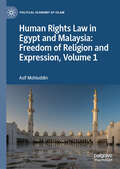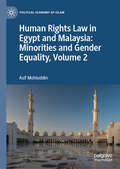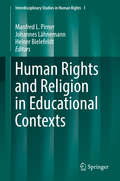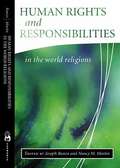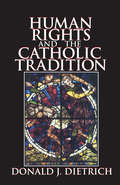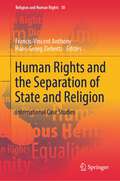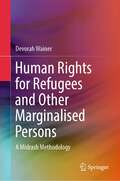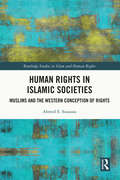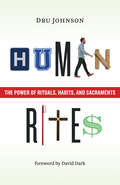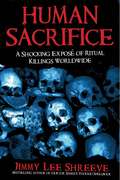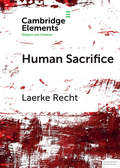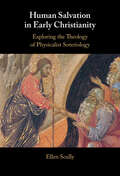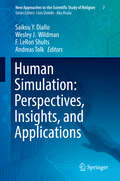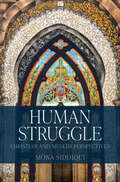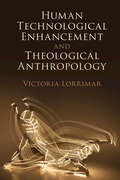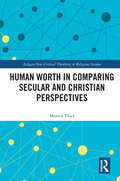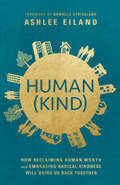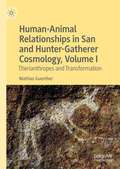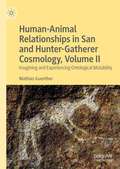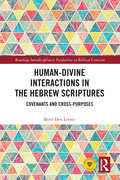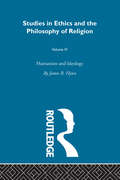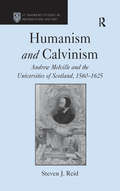- Table View
- List View
Human Rights Law in Egypt and Malaysia: Freedom of Religion and Expression, Volume 1 (Political Economy of Islam)
by Asif MohiuddinThe discourse surrounding freedom of religion and expression in Muslim-majority countries is complex and multifaceted, shaped by a myriad of factors including cultural, political, and legal dynamics. This volume examines the complex interplay of these factors within the contexts of Egypt and Malaysia, offering valuable insights into the challenges and advancements in safeguarding these fundamental freedoms. From the diverse interpretations of Islamic principles to the varying legal frameworks and the influence of global events, such as geopolitical conflicts and terrorism, on human rights dynamics, this volume provides a comprehensive exploration of the complexities involved. Moreover, it delves into the historical, social, and political contexts that shape the protection and limitation of these freedoms, offering a nuanced understanding of the evolving discourse surrounding human rights in Muslim-majority countries. Through comparative analyses and discussions on the role of civil society and advocacy groups, this volume serves as an invaluable resource for scholars, policymakers, and activists seeking to deepen their understanding of the multifaceted realm of freedom of religion and expression in Egypt and Malaysia.
Human Rights Law in Egypt and Malaysia: Minorities and Gender Equality, Volume 2 (Political Economy of Islam)
by Asif MohiuddinIn Muslim-majority countries, safeguarding minority rights and advancing gender equality are vital components of the broader human rights discussion. Minority rights encompass various groups, including ethnic, religious, and linguistic minorities, who often face discrimination, marginalisation and unequal treatment within society. These challenges are rooted in historical, cultural and socio-political factors that shape legal frameworks and societal attitudes towards minority communities. Similarly, gender dynamics play a significant role in the human rights discourse in these nations, as women encounter various forms of discrimination and inequality, such as limited access to education, employment, and participation in decision-making processes. This volume explores the legal frameworks concerning minority rights and gender equality in Egypt and Malaysia, shedding light on the challenges faced by marginalised groups in these countries. It evaluates the effectiveness of legal instruments and mechanisms in addressing discrimination and promoting inclusivity within these societies. Furthermore, it examines laws, government policies and court rulings related to women’s rights, covering essential topics such as education, employment and political engagement. This volume offers valuable insights for policymakers, legal practitioners, academics and activists dedicated to understanding and advocating for human rights in these societies.
Human Rights and Religion in Educational Contexts
by Manfred L. Pirner Johannes Lähnemann Heiner BielefeldtWhat is the role of religion(s) in a human rights culture and in human rights education? How do human rights and religion relate in the context of public education? And what can religious education at public schools contribute to human rights education? These are the core questions addressed by this book. Stimulating deliberations, illuminating analyses and promising conceptual perspectives are offered by renowned experts from ten countries and diverse academic disciplines.
Human Rights and Responsibilities in the World Religions (Library of Global Ethics & Religion)
by Arvind Sharma Joseph Runzo Nancy M MartinThis book outlines approaches to human rights and responsibilities within the different world religions.
Human Rights and the Catholic Tradition
by Donald DietrichFrom the French Revolution to Vatican II, the institutional Catholic Church has opposed much that modernity has offered men and women constructing their societies. This book focuses on the experiences of German Catholics as they have worked to engage their faith with their culture in the midst of the two world wars, the barbarism of the Nazi era, and the uncertainties and conflicts of the post-World War II world.German Catholics have confronted and challenged their Church's anti-modernism, two lost wars, the Weimar Republic, the Nazi Third Reich, the Cold War, German reunification and the impulses of globalization. Catholic theologians and those others nurtured by Catholicism, who resisted Nazism to create their own private spaces, developed a personal and existential theology that bore fruit after 1945. Such theologians as Karl Rahner, Johannes Metz, and Walter Kasper, were rooted in their political experiences and in the renewal movement built by those who attended Vatican II. These theologians were sensitive to the horrors of the Nazi brutalization, the positive contributions of democracy, and the need to create a Catholicism that could join the conversation on human rights following World War II. This dialogue meant accepting non-Catholic religious traditions as authentic expressions of faith, which in turn required that the sacred dignity of every man, woman, and child had to be respected. By the twenty-first century, Catholic theologians had made furthering a human rights agenda part of their tradition, and the German contribution to Catholic theology was crucial to that development. The current Catholic milieu has been forged through its defensive responses to the Enlightenment, through its resistance to ideologies that have supported sanctioned murder, and through an extensive dialogue with its own traditions.In focusing on the German Catholic experience, Dietrich offers a cultural approach to the study of the religious and ethical issues that ground the hum
Human Rights and the Separation of State and Religion: International Case Studies (Religion and Human Rights #10)
by Hans-Georg Ziebertz Francis-Vincent AnthonyThis text highlights key aspects of the religion/church-state relationship/debate, and related hitherto marginal topics. The contributions make clear that there is no clear blueprint for an optimal relationship between religion/church and state. Individual states and countries are analysed on the granular level for example, to address mono-religious against poly-religious as well as secular societies. Among others, chapters address education, migration and politics against religion as well as the effect of LGBTQ+ communities on religion and societies. This collected volume appeals to researchers, and students working in religious studies and political science.
Human Rights for Refugees and Other Marginalised Persons: A Midrash Methodology
by Devorah WainerThis book provides a new framework for conducting qualitative research into Asylum Seeking Refugees based on Emmanuel Levinas’ ethic of the face-to-face encounter. The methodology originates in the term Midrash—a narrative form that exposes; investigates; searches. It reconceptualises encounters between Asylum Seeking Refugees and those researching their experiences in a manner that moves beyond the possibility of ‘Othering’ and the removal of ‘voice’ that can characterise research into refugees. This methodology allows a complex and rich multidimensional text, with heterogeneity of voices, experiences, and subjects. As a phenomenological method of research, the internal phenomena of the researcher—feeling, intuition, and personal perception—are legitimate sites of knowledge and understanding, and are not considered separate from the external, objectively observable world. While the researcher is not researching herself, she is also not separate from the research field and data. The Midrash methodology is an honest and explicit method of research designed to (re)invigorated the passion of academics and researchers.
Human Rights in Islamic Societies: Muslims and the Western Conception of Rights (Routledge Studies in Islam and Human Rights)
by Ahmed E. SouaiaiaThis book compares Islamic and Western ideas of human rights in order to ascertain which human rights, if any, can be considered universal. This is a profound topic with a rich history that is highly relevant within global politics and society today. The arguments in this book are formed by bringing William Talbott’s Which Rights Should Be Universal? (2005) and Abdulaziz Sachedina’s Islam and the Challenge of Human Rights (2014) into conversation. By bridging the gap between cultural relativists and moral universalists, this book seeks to offer a new model for the understanding of human rights. It contends that human rights abuses are outcomes of complex systems by design and/or by default. Therefore, it proposes that a rigorous systems-thinking approach will contribute to addressing the challenge of human rights. Engaging with Islamic and Western, historical and contemporary, and relativist and universalist thought, this book is a fresh take on a perennially important issue. As such, it will be a first-rate resource for any scholars working in religious studies, Islamic studies, Middle East studies, ethics, sociology, and law and religion.
Human Rights in the Middle East
by Mahmood MonshipouriExploring the most formidable human rights challenges facing the Middle East - the rights of women, minorities, migrant workers, and those of various sexual orientations, and the rights of all people to engage in civil disobedience - this volume addresses the extent to which dynamics surrounding human rights conditions in the region conform to or diverge from such dynamics in other parts of the world. Offering wide-ranging and rich analyses, the contributors to this volume argue that for human rights to be effectively enforced, they must be locally justified and achieved. The 2011 Arab revolts demonstrate that the people of the region can shape the condition of human rights in their societies.
Human Rites: The Power of Rituals, Habits, and Sacraments
by Dru JohnsonWhat are we doing when we gather around the sacraments— or when we make the same breakfast every morning? Embodying rituals, says Dru Johnson. And until we understand what we&’re doing and why, we won&’t know how these rituals work, what they mean, or how we might adapt them.In Human Rites Johnson considers the concept of ritual as seen in Scripture and its role in shaping our thinking. He colorfully illustrates both the mundane and the sacred rituals that penetrate all of life, offering not only a helpful introduction to rituals but also a framework for understanding them. As he unpacks how rituals pervade every area of our lives, Johnson suggests biblical ways to focus our use of rituals, habits, and sacraments so that we can see the world more truly through them.
Human Rites: The Power of Rituals, Habits, and Sacraments
by Dru JohnsonWhat are we doing when we gather around the sacraments— or when we make the same breakfast every morning? Embodying rituals, says Dru Johnson. And until we understand what we’re doing and why, we won’t know how these rituals work, what they mean, or how we might adapt them.In Human Rites Johnson considers the concept of ritual as seen in Scripture and its role in shaping our thinking. He colorfully illustrates both the mundane and the sacred rituals that penetrate all of life, offering not only a helpful introduction to rituals but also a framework for understanding them. As he unpacks how rituals pervade every area of our lives, Johnson suggests biblical ways to focus our use of rituals, habits, and sacraments so that we can see the world more truly through them.
Human Sacrifice: A Shocking Exposé of Ritual Killings Worldwide
by Jimmy Lee ShreeveWelcome to the terrifying world of ritual sacrifice.Around the world, humans are being trafficked, kidnapped, sold, and enslaved for the specific purpose of sacrifice. Mass-scale migration has seen these gruesome techniques exported from the land of the Aztecs and finding their way to the United States, Britain, and many other locations worldwide. Voodoo priests in London have been linked to ritual murders, and not long ago a Palo Mayombe priestess's New York City apartment yielded its grisly secrets. One New Jersey investigator says that sacrificial rites are not only going on today, but can be traced back ninety years in the States alone.Jimmy Lee Shreeve takes us on a nightmare journey, following the initial investigations of Scotland Yard into the murder of a five-year-old boy whose torso was found floating in the Thames in 2001, and traveling to Africa to unveil a grim trade of exporting humans for sacrifice. He uncovers the dark side of voodoo and muti magic, linked with a score of sacrifices and murders, and in Mexico, finds a devotee of Palo Mayombe responsible for torturing his victims and boiling them in a cauldron. Along the way, Shreeve brings his own brand of offbeat detective skills to the fore, providing startling conclusions to some of the world's most horrific murders. Brutal and disturbing, Human Sacrifice takes us into the dark world of twenty-first-century ritual murder.
Human Sacrifice: Archaeological Perspectives from around the World (Elements in Religion and Violence)
by Laerke RechtSacrifice is not simply an expression of religious beliefs. Its highly symbolic nature lends itself to various kinds of manipulation by those carrying it out, who may use the ritual in maintaining and negotiating power and identity in carefully staged 'performances'. This Element will examine some of the many different types of sacrifice and ritual killing of human beings through history, from Bronze Age China and the Near East to Mesoamerica to Northern Europe. The focus is on the archaeology of human sacrifice, but where available, textual and iconographic sources provide valuable complements to the interpretation of the material.
Human Salvation in Early Christianity: Exploring the Theology of Physicalist Soteriology
by Ellen ScullyHuman salvation has been at the heart of Christian theological debate ever since the earliest centuries of Christianity. In this period, some Christians argued that because all of humanity falls in Adam, the incarnation of Christ, who is the second Adam, must also have a universal effect. Ellen Scully here presents the first historical study of Early Christian theology regarding physicalist soteriology, a logic by which Christ's incarnation has universal effects independent of individual belief or consent. Analyzing the writings of Athanasius, Hilary of Poitiers, Marius Victorinus, Gregory of Nyssa, Cyril of Alexandria, and Maximus the Confessor, she offers an overview of the historical rise and fall of the theological logic of physicalist soteriology. Scully also provides an analysis of how Early Christian theological debates concerning ascetism and ensoulment models have caused Christian narratives of salvation history to become individualistic, and suggests how a contemporary study of physicalist soteriology can help reverse this trend.
Human Simulation: Perspectives, Insights, and Applications (New Approaches to the Scientific Study of Religion #7)
by Wesley J. Wildman Andreas Tolk F. LeRon Shults Saikou Y. DialloThis uniquely inspirational and practical book explores human simulation, which is the application of computational modeling and simulation to research subjects in the humanities disciplines. It delves into the fascinating process of collaboration among experts who usually don’t have much to do with one another – computer engineers and humanities scholars – from the perspective of the humanities scholars. It also explains the process of developing models and simulations in these interdisciplinary teams. Each chapter takes the reader on a journey, presenting a specific theory about the human condition, a model of that theory, discussion of its implementation, analysis of its results, and an account of the collaborative experience. Contributing authors with different fields of expertise share how each model was validated, discuss relevant datasets, explain development strategies, and frankly discuss the ups and downs of the process of collaborative development. Readers are given access to the models and will also gain new perspectives from the authors’ findings, experiences, and recommendations. Today we are in the early phases of an information revolution, combining access to vast computing resources, large amounts of human data through social media, and an unprecedented richness of methods and tools to capture, analyze, explore, and test hypotheses and theories of all kinds. Thus, this book’s insights will be valuable not only to students and scholars of humanities subjects, but also to the general reader and researchers from other disciplines who are intrigued by the expansion of the information revolution all the way into the humanities departments of modern universities.
Human Struggle: Christian and Muslim Perspectives
by Mona SiddiquiMany of the great thinkers and poets in Christianity and Islam led lives marked by personal and religious struggle. Indeed, suffering and struggle are part of the human condition and constant themes in philosophy, sociology and psychology. In this thought-provoking book, acclaimed scholar Mona Siddiqui ponders how humankind finds meaning in life during an age of uncertainty. Here, she explores the theme of human struggle through the writings of iconic figures such as Dietrich Bonhoeffer, Muhammad Ghazali, Rainer Maria Rilke and Sayyid Qutb - people who searched for meaning in the face of adversity. Considering a wide range of thinkers and literary figures, her book explores how suffering and struggle force the faithful to stretch their imagination in order to bring about powerful and prophetic movements for change. The moral and aesthetic impulse of their writings will also stimulate inter-cultural and interdisciplinary conversations on the search for meaning in an age of uncertainty.
Human Technological Enhancement and Theological Anthropology
by Victoria LorrimarIn this book, Victoria Lorrimar explores anthropologies of co-creation as a theological response to the questions posed by technologically enhanced humans, a prospect that is disturbing to some, but compelling for many. The centrality the imagination for moral reasoning, attested in recent scholarship on the imagination, offers a fruitful starting point for a theological engagement with these envisioned technological futures. Lorrimar approaches the topic under the purview of a doctrine of creation that affirms a relationship between human and divine creativity. Traditionally, theological treatments of creativity have been almost exclusively applied to artistic endeavours. Here, Lorrimar breaks new ground by extending such theological accounts to include technology, and uniting them with the strengths of scientific accounts of co-creation. She draws on metaphor studies, cognitive sciences, as well as literary studies, to develop an account of human creativity in relation to divine creativity, which is then applied to various enhancement scenarios.
Human Worth in Comparing Secular and Christian Perspectives (Ashgate New Critical Thinking in Religious Studies See Series ID 2069)
by Monica ThielThis book integrates secular literature such as psychology, sociology, management, and organization studies with Christian and spiritual biblical literature. This book explores the importance of human worth in our personal and professional lives through an interdisciplinary approach that integrates human and societal worth with Christian and spiritual worth. Moreover, the book highlights values that receive little or no attention in secular literature. Overall, this book shows readers how human worth is often manipulated and undermined within societal worth in contrast to Christian worth with implications for cultivating leadership and education. This book focuses more on the biblical texts rather than the theological differences. In addition, this book situates itself on common biblical interests across Christian church denominations worldwide rather than exploring more on the secular cultural differences. This book positions itself from a non-denominational and Western perspective with a focus on biblical texts, theology, and secular literature.Readers that would be interested in this book are scholars and students in religion, ethics, and spirituality.
Human(Kind): How Reclaiming Human Worth and Embracing Radical Kindness Will Bring Us Back Together
by Ashlee EilandA talented storyteller and peacemaker asks: Can kindness kindle a revolution?&“Ashlee teaches by example how to live with courage and compassion, and I believe her perspective and voice will be deeply meaningful to so many people.&”—Shauna Niequist Long before polls, protests, and political issues divided us, we were joined by a humanness that God considered very good. Created in his image, we reflected the height and depth of God&’s loving-kindness, but our discord has blinded us to the imago Dei in us all.In this compelling collection of essays, Ashlee Eiland shares her story of being a black woman living on two sides of the fence: as the token black girl in majority-white spaces and as the &“whitewashed&” black girl in majority-black spaces. As she discovers her own unique worth through these recollections, Ashlee learns that extending radical kindness toward every person—regardless of social status, political views, or religious beliefs—gives us hope and rekindles our common humanity.With grace and humility, Human(Kind) invites us to chart our own formative journeys and recognize our inherent value, cultivating empathy so we may once again see the image of God shining brightly within one another.
Human-Animal Relationships in San and Hunter-Gatherer Cosmology, Volume I: Therianthropes and Transformation
by Mathias GuentherExploring a hitherto unexamined aspect of San cosmology, Mathias Guenther’s two volumes on human-animal relations in San cosmology link “new Animism” with Khoisan Studies, providing valuable insights for Khoisan Studies and San culture, but also for anthropological theory, relational ontology, folklorists, historians, literary critics and art historians. In Volume I, therianthropes and transformations, two manifestations of ontological mutability that are conceptually and phenomenologically linked, are contextualized in broader San myth. Guenther explores the pervasiveness of human-animal hybridity and transformation in San expressive culture (myth, stories and storytelling, ludic dancing and art, ancestral rock art and contemporary easel art), ritual (trance dance curing, female and male rites of passage) and hunting. Transformation is shown to be experienced by humans, particularly via rituals and dancing that evoke animal identity mergers, but also by hunters who may engage with their prey animals in terms of sympathy and inter-subjectivity, particularly through the use of “hunting medicines.”
Human-Animal Relationships in San and Hunter-Gatherer Cosmology, Volume II: Imagining and Experiencing Ontological Mutability
by Mathias GuentherExploring a hitherto unexamined aspect of San cosmology, Mathias Guenther’s two volumes on human-animal relations in San cosmology link “new Animism” with Khoisan Studies, providing valuable insights for Khoisan Studies and San culture, but also for anthropological theory, relational ontology, folklorists, historians, literary critics and art historians. Building from the examinations of San myth and contemporary culture in Volume I, Volume II considers the experiential implications of a cosmology in which ontological mutability—ambiguity and inconstancy—hold sway. As he considers how people experience ontological mutability and deal with profound identity issues mentally and affectively, Guenther explores three primary areas: general receptiveness to ontological ambiguity; the impact of the experience of transformation (both virtual/vicarious and actual/direct); and the intersection of the mythic, spirit world with reality. Through a comparative consideration of animistic cosmology amongst the San, Bantu-speakers and the Inuit of Canada’s eastern Arctic, alongside a discussion of animistic currents in Western humanities and ethology, Guenther clearly paints the relative strengths and weaknesses of New Animism discourse, particularly in relation to San ontology and cosmology, but with overarching relevance.
Human-Divine Interactions in the Hebrew Scriptures: Covenants and Cross-Purposes (Routledge Interdisciplinary Perspectives on Biblical Criticism)
by Berel Dov LernerThis book addresses central theological issues and biblical narratives in terms of a bold thesis regarding relations between God and humans: that the actions of God and the actions of humans are informed by independently valid moral viewpoints which do not entirely overlap. The author suggests that God’s plans and actions refl ect the interests and obligations appropriate to His goal of creating a worthy world, but not necessarily our world. In contrast, humans must attend to special obligations grounded in their dependence on their existing created world and in their particular places in the human family. However, in acts of grace, God voluntarily takes on special obligations toward the created world by entering covenants with its inhabitants. When the covenant involves reciprocal obligations, as in the case of God’s covenant with Israel, it also recruits human beings to play conscious roles in God’s larger plans. These covenants frame the moral parameters of human-divine interaction and cooperation in which each party strains to negotiate confl icts between its original duties and the new obligations generated by covenants. The interpretive discussions in this book involve close readings of the Hebrew text and are also informed by rabbinic tradition and Western philosophy. They address major issues that are of relevance to scholars of the bible, theology, and philosophy of religion, including the relationship between divine commands and morality, God’s responsibility for human suff ering, God’s role in history and the intersection between politics and religion.
Human-Divine Interactions in the Hebrew Scriptures: Covenants and Cross-Purposes (Routledge Interdisciplinary Perspectives on Biblical Criticism)
by Berel Dov LernerRabbi Sacks Book Prize Finalist 2024. This book addresses central theological issues and biblical narratives in terms of a bold thesis regarding relations between God and humans: that the actions of God and the actions of humans are informed by independently valid moral viewpoints which do not entirely overlap. The author suggests that God’s plans and actions refl ect the interests and obligations appropriate to His goal of creating a worthy world, but not necessarily our world. In contrast, humans must attend to special obligations grounded in their dependence on their existing created world and in their particular places in the human family. However, in acts of grace, God voluntarily takes on special obligations toward the created world by entering covenants with its inhabitants. When the covenant involves reciprocal obligations, as in the case of God’s covenant with Israel, it also recruits human beings to play conscious roles in God’s larger plans. These covenants frame the moral parameters of human-divine interaction and cooperation in which each party strains to negotiate confl icts between its original duties and the new obligations generated by covenants. The interpretive discussions in this book involve close readings of the Hebrew text and are also informed by rabbinic tradition and Western philosophy. They address major issues that are of relevance to scholars of the bible, theology, and philosophy of religion, including the relationship between divine commands and morality, God’s responsibility for human suff ering, God’s role in history and the intersection between politics and religion.
Humanism & Ideology Vol 4
by James Robert FlynnFirst published in 2003. Routledge is an imprint of Taylor & Francis, an informa company.
Humanism and Calvinism: Andrew Melville and the Universities of Scotland, 1560–1625 (St Andrews Studies in Reformation History)
by Steven J. ReidAcross early-modern Europe the confessional struggles of the Reformation touched virtually every aspect of civic life; and nowhere was this more apparent than in the universities, the seedbed of political and ecclesiastical society. Focussing on events in Scotland, this book reveals how established universities found themselves at the centre of a struggle by competing forces trying to promote their own political, religious or educational beliefs, and under competition from new institutions. It surveys the transformation of Scotland's medieval and Catholic university system into a greatly-expanded Protestant one in the decades following the Scottish Reformation of 1560. Simultaneously the study assesses the contribution of the continentally-educated religious reformer Andrew Melville to this process in the context of broader European social and cultural developments - including growing lay interest in education (as a result of renaissance humanism), and the involvement of royal and civic government as well as the new Protestant Kirk in university expansion and reform. Through systematic use of largely neglected manuscript sources, the book offers fresh perspectives on both Andrew Melville and the development of Scottish higher education post-1560. As well as providing a detailed picture of events in Scotland, it contributes to our growing understanding of the role played by higher education in shaping society across Europe.
